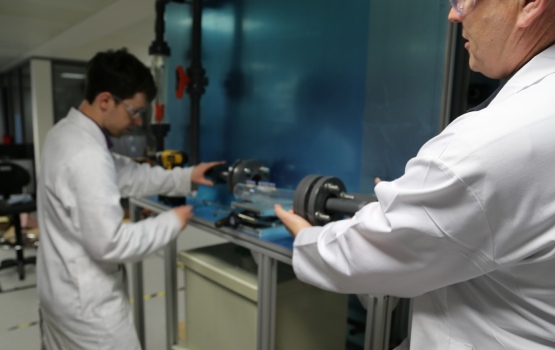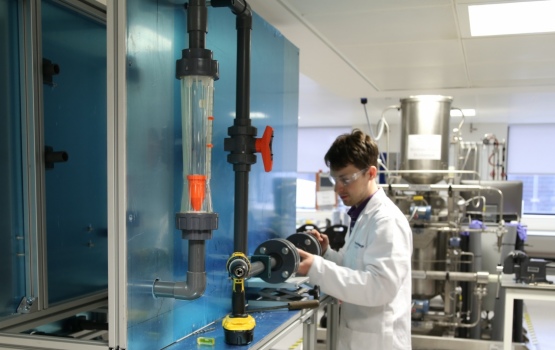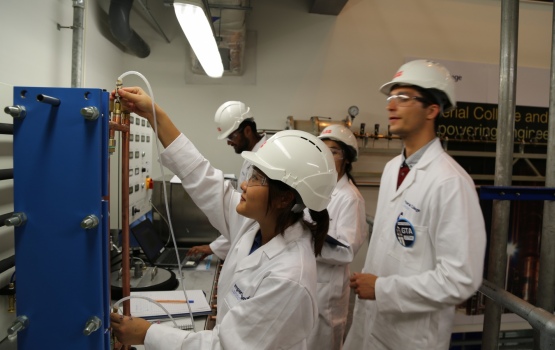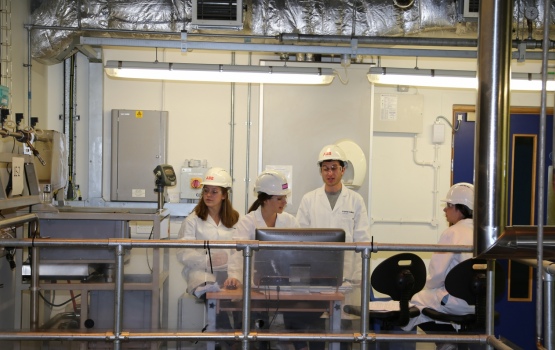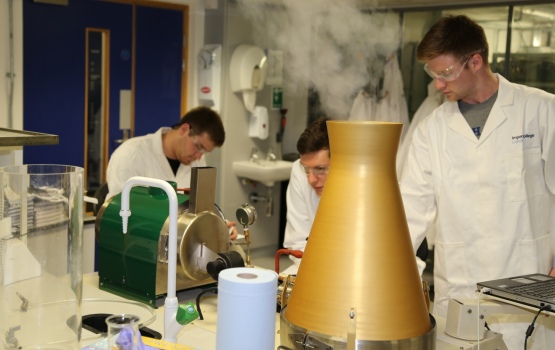Teaching labs update with a view to the future
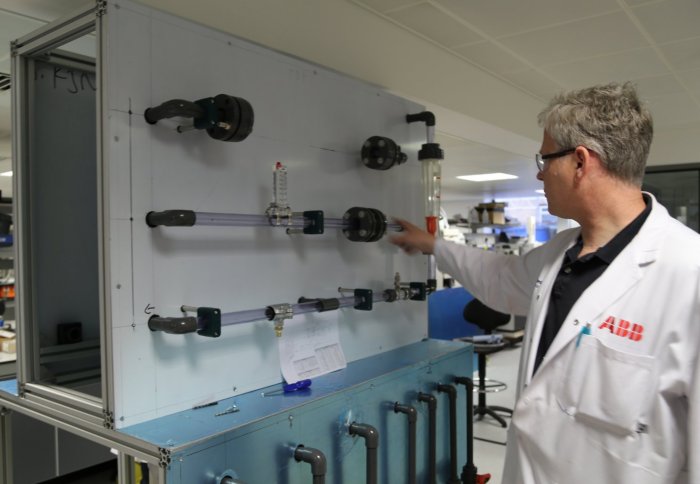
New equipment and a redesign of experiments makes labs uniquely suited to train undergraduates for challenges in industry and research.
The Department of Chemical Engineering already boasts one of the best equipped facilities for training chemical engineering students anywhere in the world with a state-of-the-art Pilot Plant and a stand-alone teaching lab with tailor-made equipment laid out over 300 square meterd of floor space. The undergraduate labs form the underpinnings of the world-class research taking place at the department by encouraging students to engage more deeply with theoretical concepts through experimental modules. The labs, in conjunction with the Pilot Plant, also serve as a valuable window into the industrial world by giving students first-hand experience of the processes and equipment they are likely to encounter. Dr Clemens Brechtelsbauer, the Principal Teaching Fellow for the undergraduate labs said, “Our goal is to reinforce the concepts taught in the lectures and demonstrate how they actually apply in the real-world. We are always looking for input from academics and lecturers on how the experiments can be updated and improved so students have the tools to tackle problems they might face in research or industry”.
Our goal is to reinforce the concepts taught in the lectures and demonstrate how they actually apply in the real-world
– Dr Clemens Brechtelsbauer
Head of Teaching Laboratories and Pilot Plant
Over the past year, two new rigs were added to the portfolio of the teaching labs - a multi-modular Heat Exchanger unit and a Flow Measurement and Calibration rig - both of which cover critical operations of chemical engineering: heat transfer and fluid flow. The heat exchange kit features five different exchanger profiles, the option to select the number of heat-exchangers employed and the ability to run in co-current or counter-current operation. The rig can also be set up to function as a heat exchanger network – a key component of any manufacturing facility. The flow measurement kit will let students work on calibrating flow meters of various types and comparing the relative strengths and weaknesses across the operating spectrum of the equipment. It is also a modular unit allowing students to characterise the flow across various types of valves. Most importantly, both the heat exchange and fluid flow kits are specified to industrial standards, allowing the students to get a first-hand experience of this equipment before entering industry.
In addition to the new equipment, existing experiments are also being updated in order to give students the option to study processes or concepts that have not been explored in lectures. This reflects the aim of the labs to grant students more freedom as they gain a greater understanding of chemical engineering concepts.
The purpose of the Undergraduate Teaching Laboratories is to provide a safe learning environment for undergraduate students of chemical engineering, where they experience the practical aspects of the discipline in 50 epxperiments spread over three years, complementing the lecture content. In their first year, the Foundation lab module focuses on teaching practical skills in chemistry, physics and process engineering, through exemplifying them on relevant topics and experiments are tightly structured. For the second year Knowledge lab, students are granted more freedom within the experiments to choose which aspects of the topic they would like to investigate. Finally, in the third year Discovery lab modules, students are presented with the experimental envelope for a given equipment and allowed to design their own experiments in conjunction with PhD graduate teaching assistants. Senior Teaching fellow Dr Umang Shah, who oversees the undergraduate teaching labs said, “The aim with the new equipment is to give students more freedom to choose their topics as they progress through the course”.
Over the coming years, the Undergraduate labs will also endeavour to schedule experiments to coincide with lectures of the same topics so as to foster a deeper understanding of the core concepts of chemical engineering.
Article text (excluding photos or graphics) © Imperial College London.
Photos and graphics subject to third party copyright used with permission or © Imperial College London.
Reporter
Michael Panagopulos
Department of Chemical Engineering
